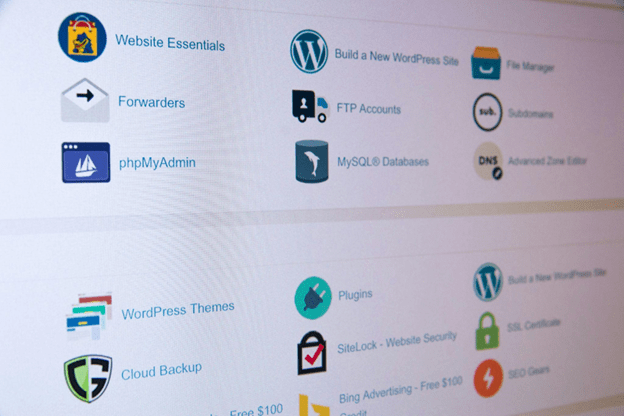
Every web design project aims for a fast, reliable, and secure website. However, selecting the best hosting for your needs can improve your website’s performance and user experience. Let’s examine the essential factors to consider when choosing web hosting.
Assessing Your Website’s Needs
First, decide what kind of website you want to make. What kind of site is it? Is it a personal blog, a showcase, an e-commerce site, or a big business site? Different types of sites have different needs. A personal blog, for instance, doesn’t need as many resources as an e-commerce site with hundreds of goods and many visitors.
The size of your website is an important consideration when choosing a hosting service as recommended by a web developer Philippines, How many pages will it have? Will you feature high-resolution images or videos? The answers to these questions will help determine the storage and bandwidth you need.
It’s essential to know how much traffic you can expect. Will your site get a steady flow of people, or will there be spikes? Predicting future growth is also very important. You don’t want to quickly outgrow your hosting plan and have to switch to a new one, which can be a pain. Pick a server plan that can meet your needs now and in the future.
Types of Web Hosting Explained
- Shared Hosting – Shared hosting is like living in an apartment building. You share resources like CPU, RAM, and bandwidth with other websites. It’s the most cost-effective option, making it ideal for small websites or those just starting. However, shared hosting can be slower and less reliable because you’re affected by the traffic and activities of other sites on the same server.
- VPS Hosting – VPS (Virtual Private Server) hosting balances cost and performance. It’s like owning a condo. You still share a server, but you have dedicated resources. This means better performance and more control over your hosting environment. It’s suitable for growing websites that need more power than shared hosting can offer.
- Dedicated Hosting – When you use dedicated hosting, you have your computer, like having your own home. You are in charge of all the server’s settings and resources, which means it works at its best and is always reliable. This is the best option for big websites that get a lot of traffic or need special server settings.
- Cloud Hosting – Cloud hosting uses multiple servers to host your website. It’s highly flexible and scalable, making it an excellent option for websites with fluctuating traffic or those that need high availability. If one server goes down, another can take over, ensuring your site remains online. Cloud hosting can be more expensive, but the benefits often outweigh the costs.
Key Factors to Consider When Choosing Hosting
- Performance and Speed – Website speed is critical. A slow website can frustrate visitors and hurt your search engine rankings. Look for hosting providers that offer high-speed servers, and consider using a Content Delivery Network (CDN) to enhance your site’s speed further.
- Reliability and Uptime – Reliability and uptime are vital. Aim for a hosting provider that guarantees at least 99.9% uptime. This means your site will always be accessible, minimizing potential loss of visitors and revenue.
- Security Features – Security should be a top priority. Ensure your hosting provider offers robust security features such as firewalls, malware scanning, and automated backups. SSL certificates are also crucial for encrypting data and securing transactions.
Evaluating Hosting Provider Reputation

Before committing to a hosting provider, research their reputation. Read customer reviews and testimonials to understand their reliability and customer service. Look for patterns in the feedback, such as frequent complaints about downtime or poor support.
Industry expert recommendations can also provide valuable insights. Trusted tech websites and blogs often review hosting providers, highlighting their strengths and weaknesses. These reviews can help you make a more informed decision.
Understanding Pricing Structures
Hosting providers often offer attractive initial rates, but renewal costs can be significantly higher. Ensure you understand the full pricing structure, including potential price increases after the initial term.
Be aware of hidden fees. Some hosting providers charge extra for services like backups, SSL certificates, or site migrations. Read the fine print and ask questions if anything needs to be clarified.
Scalability and Future-Proofing Your Hosting Choice
Your website’s needs will likely change over time. Choose a hosting provider that can scale with you. Flexibility is key, whether upgrading to a more powerful plan or adding resources on demand.
Check if the hosting provider allows easy upgrades or downgrades. This flexibility ensures you can adjust your hosting plan as your website grows or your needs decrease.
Compatibility with Web Design Platforms and Technologies
If you’re using WordPress, ensure your hosting provider supports it well. Some providers offer specialized WordPress hosting with features like one-click installations, automatic updates, and enhanced security.
Compatibility with platforms like WooCommerce, Magento, or Shopify is essential for e-commerce sites. Ensure your hosting provider offers the necessary support and performance to handle your online store’s needs.
Customer Support Quality and Availability
Issues can arise at any time, so 24/7 customer support is crucial. Look for hosting providers that offer round-the-clock support through multiple channels, such as live chat, phone, and email.
Response time matters. A hosting provider with fast and efficient support can save you a lot of headaches. Check their average response times and see if they offer multiple support channels.
Considering Server Location and Data Centers
The physical location of your server can affect your website’s performance. Servers closer to your target audience will generally provide faster load times. Consider using a CDN to distribute your content efficiently if your audience is global.
Data centers should have redundancy measures, such as backup power supplies and failover systems. These measures ensure your website remains online even if something goes wrong at the data center.
Understanding Bandwidth and Storage Requirements
Bandwidth determines how much data can be transferred between your site and its users. Estimate your bandwidth needs based on your expected traffic and the size of your website’s files. Hosting plans with unlimited bandwidth can be a good choice if you expect high traffic volumes.
Storage space is where your website’s files, images, videos, and databases reside. Ensure your hosting plan provides enough storage to accommodate your current needs and future growth.
Integrating Additional Features and Tools
- Email Hosting Services – Many hosting providers offer email hosting as part of their plans. This feature allows you to create professional email addresses using your domain name, enhancing your site’s credibility.
- SSL Certificates and Security Tools – SSL certificates are essential for encrypting data and securing transactions on your site. Many hosting providers include them for free or at a low cost. To protect your site, look for additional security tools, such as malware scanning and removal.
- SEO functions – Some hosting providers also offer basic website SEO on its features, including tools and AI generators for meta tags, titles, and descriptions for your website.
Environmental Considerations and Sustainability
If sustainability is important, consider a hosting provider with green initiatives. Some providers use renewable energy to power their data centers or have carbon offset programs.
Energy-efficient data centers help the environment and indicate a provider’s commitment to modern, reliable infrastructure. Look for certifications or statements about their energy efficiency practices.
Making an Informed Decision: Checklist for Choosing Hosting
Before making a final decision, summarize your priorities. What are your must-haves in a hosting provider? Consider factors like performance, security, scalability, and support.
Compare different hosting providers based on your priorities. Create a list of potential providers and evaluate them against your checklist. This process will help you choose the best hosting for your web design needs.
Conclusion
Choosing the best hosting for your web design needs is crucial for your website’s success. You can make an informed decision by assessing your website’s requirements, understanding different hosting types, and considering key factors like performance, security, and support. Your website will be fast, reliable, and ready to grow with the right hosting provider.







